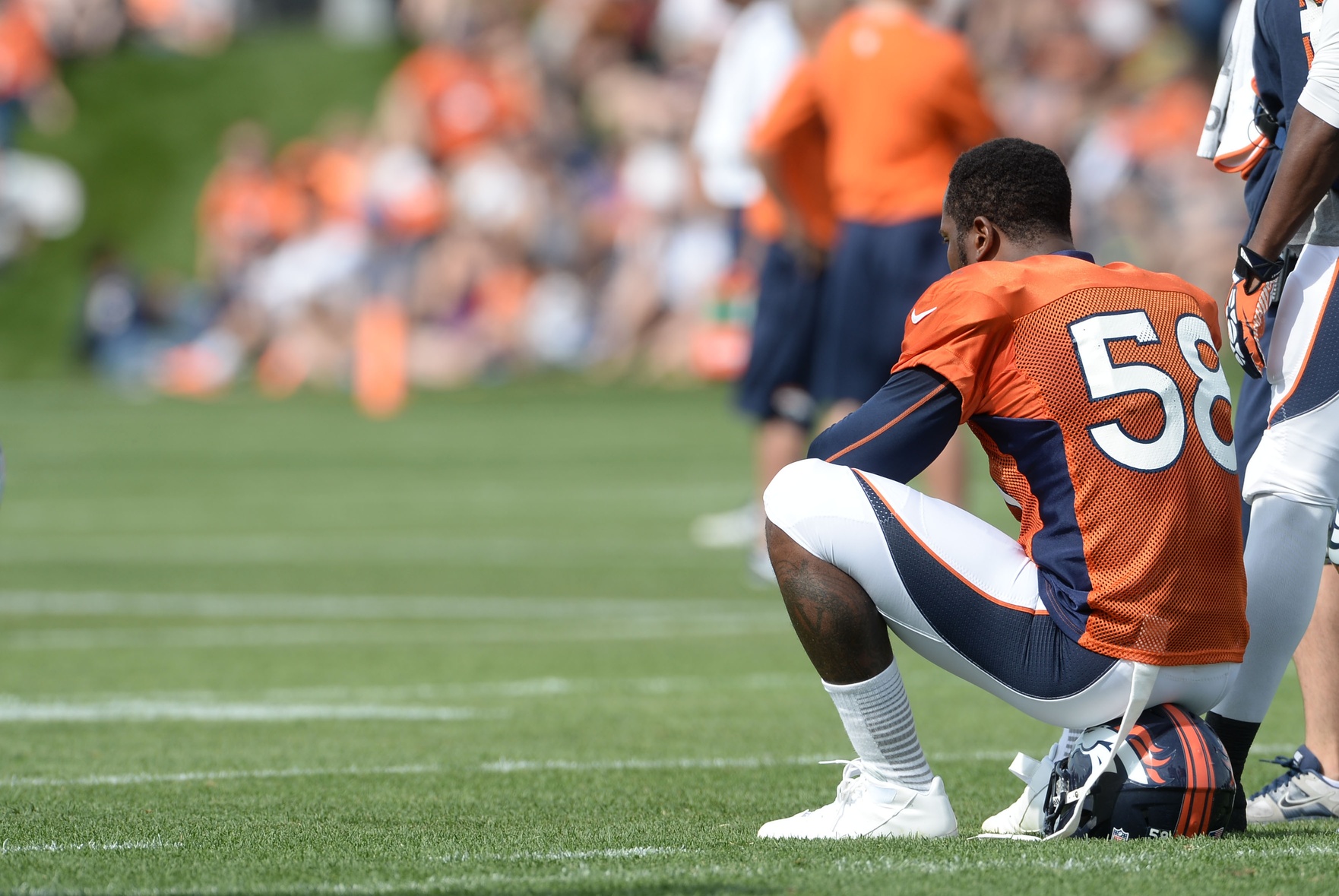The following article is a guest contribution from Evan Brennan. Mr. Brennan is a current student at Chapman Law School. He holds a Master’s degree in Sports Management from California State University at Long Beach, and a Bachelor’s degree from Brigham Young University. He has worked in athlete public relations, marketing, and other areas for various sports professionals and companies for years. Follow him at @brennansports on Twitter.

While baseball certainly has been under a cloud of controversy for its players use of banned substances, the NFL is not immune from its own players being embroiled in Performance Enhancing Drugs issues. Stars such as Denver Broncos linebacker, Von Miller have been slapped with four-game suspensions by testing positive for PEDs. It’s not just performance enhancing drugs they test for either, it’s pretty much anything, so even if you’re taking something to help you through something like an opioid withdrawal this will be classed as a fail even if its part of your recovery.
From the player’s, and ultimately the agent’s perspective, understanding what is at stake, the fines and suspensions, as well as the methods to ethically avoid a positive test that are in place are crucial to a successful career. The NFL in 2010 set up the National Football League Policy on Anabolic Steroids and Related Substances, which details how the league administers tests, punishes violators, and what substances are banned.
When a player tests positive for PEDs, he is suspended without pay for a minimum of four regular season or postseason games for his first offense. If it is a second offense, the player will be suspended for a minimum of eight regular season or postseason games. These penalties carry over if necessary, year-to-year and under the so-called “Merriman Rule,” a violating player will not be able to attend the Pro Bowl or receive any awards or honors from the league. The third offense by a player will require him to be suspended for 12 months and a request for reinstatement to be granted by the Commissioner.
For a player that tests positive for PEDs, not only is there a potential for loss of Paragraph 5 salary, there is also potential for the loss of one’s signing bonus: one’s “guaranteed money.” Such amount could be required to be returned to the team, or if prorated in future unpaid portions, forgone for the prorated time suspended.
Perhaps lesser known, an offense of the NFL Policy on Anabolic Steroids and Related Substances need not be strictly a positive test, but could be an attempt to substitute a specimen, providing a dilute specimen, manipulating a test result, or a related violation of law.
Where players get into trouble rather innocently, is through taking dietary supplements, such as the liposomal cbd options on the market. The FDA does not regulate dietary supplements. The FDA admittedly does not have the resources to analyze the contents of any dietary supplement, and therefore their effectiveness, contents, safety, and other components are left without much scrutiny or regulation. There is no guarantee therefore, that a banned substance is not contained in something seemingly innocuous and innocent such as Vitamin B. Even if a player’s team personnel approve or prescribe a banned substance, or a product laced with a banned substance, this will not excuse or indemnify a player from a positive test.
The NFLPA has a set up a number of ways to help players not fall victim to a positive test by such means. They have set up a hotline, a direct line to NFLPA commissioned doctors/expert on PEDs, an email address, and even a bar code scanning app (not foolproof) to aid the players if they are in a supplement retailer and have questions with supplements. The NFLPA has also partnered with the NSF International, the leading food, water, and consumer products certification to create a certification program that certifies certain brands and products against tainting with banned substances. Such certified products will bear the NSF Certified for Sport logo on them for athletes to identify which products have undergone this type of scrutiny.
There are many supplements that players would not think would be a violation of the NFL’s policies, but indeed are. In September 2012, player agents received notification and warning of the league’s focus on Adderall and Ritalin as banned substances. While common amongst those with ADD and other disorders, and increasingly misused or abused amongst college-aged students, these are particular stimulants are expressly prohibited without a prior NFL therapeutic use exemption. Such exceptions are not approved retroactively after a positive test. DHEA is a common steroidal hormone sold by many retailers that is also expressly prohibited under the PED policy, but sold without second thought to the public.
Knowing this allows players to conduct themselves in a more serious manner, and hopefully provides a mean of deterrence for those would-be offenders. It is the agent’s duty to insure that a player is indeed well educated on the “do’s and do not’s,” the ramifications, the appeal procedures, as well as the list of banned supplements that could trigger a positive test. Failure to do so on the agent’s part, could lead to huge consequences for his clients, and ultimately his practice.
